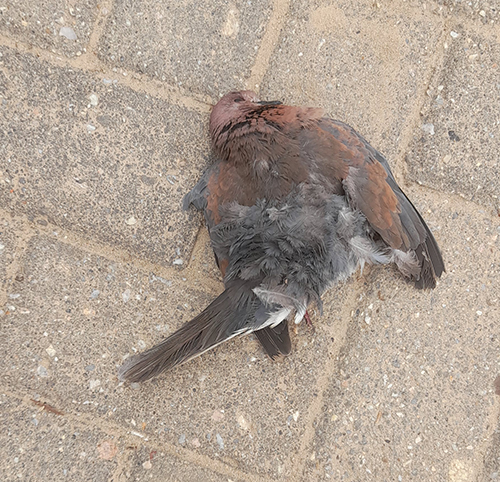Eveline de Klerk
WALVIS BAY – The agriculture ministry has assured there is no need for Namibians to panic with regards to poultry imports, as the avian flu currently only affects wild birds along the coastline.
However, any movement of domesticated poultry and wild birds from the Erongo region is prohibited.
Spokesperson of the ministry Jona Musheko yesterday indicated current poultry imports are unaffected by the outbreak but that the ministry and relevant stakeholders are on high alert and monitoring the situation.
“The countries Namibia imports poultry products from have not yet detected any avian flu. Also, imported products are sealed and pose no threat to us.
We, at the moment, are only concerned about Namibia’s wild birds along the coastline,” he said.
Meanwhile, the Directorate of Veterinary Services in the health ministry on Friday issued a joint statement, stating that the strain detected in Namibia is a deadly form of bird flu that can be transmitted to a human.
“The HPAI H5N1 strain is being detected for the first time in the history of Namibia,” the joint statement by executive directors Ndiyakupi Nghituwamata and Ben Nangombe said last week.
According to them, the current outbreak is a zoonotic strain and can be transmitted to humans from infected birds.
“Wild birds play a major role in the maintenance and spread of avian influenza (AI) viruses. Infected birds shed the virus in their saliva, nasal secretions and faeces, while domesticated birds (chickens, turkeys, etc.) and other birds may become infected through direct contact with infected wild birds, other infected poultry or through contact with surfaces that have been contaminated with the viruses,” they explained.
Therefore, they say the movement of live domestic and wild birds from coastal areas of the Erongo region is prohibited with exception of the imports and in-transit consignments originating from other countries.
They also indicated that humans can be infected with the AI virus via the eyes, nose and mouth when handling and coming into close contact with infected poultry/birds.
However, there is no recorded human-to-human transmission of bird flu.
Meanwhile, poultry farmers are encouraged to apply biosecurity measures to prevent transmission to their poultry and also keep their poultry away from areas frequented by wild birds.
“Elements that may attract wild birds, such as feed and water, should not be kept outside the poultry houses. People who become sick following the handling of wild or domestic birds or their products should report immediately to the nearest health facility,” the statement reads. – edeklerk@nepc.com.na



